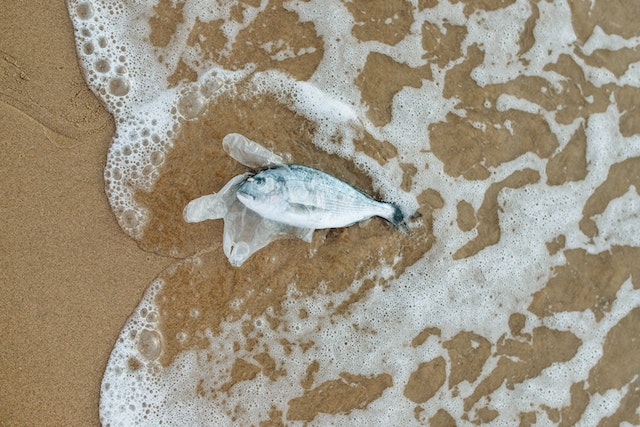By London Collins Puc
There are 42 beaches in St. Augustine that border the Atlantic Ocean, spanning from Vilano to St. Augustine, to Crescent Beach. Each of these beaches plays an important role in our community that often goes unnoticed by the ordinary bystander. Not only do they harbor transportation and tourism, they’re also major contributors to climate regulation and ecological dependency.
Because of the ever-growing problem of pollution, global warming, overfishing, and the like, our aquatic resources are becoming sparse and far less attainable. Jim Leape, co-director of the Stanford Center for Ocean Solutions, voiced his surmounting fear: “Our oceans are currently swimming with plastics. It is estimated that there are now 150 million metric tons of plastic in the ocean. We add another 8 million tons each year – that’s about five grocery bags full of plastic waste on every foot of shoreline around the world, according to a recent study.”
The plastic found in most oceans consists of mercury, lead, and cadmium. It’s no secret that marine life takes the brunt of these chemicals. That being said, it’s estimated that at least 1,000 sea turtles perish each year from being tangled, and unable to free themselves, in plastic waste, according to the World Wildlife Fund. Additionally, consuming fish that have ingested plastic, especially the chemical diethylhexyl phthalate, is directly linked to cancers, birth defects, immune system problems, and developmental issues in humans.
As quoted by UN Environment Programme Executive Director Achim Steiner: “Marine debris – trash in our oceans – is a symptom of our throw-away society and our approach to how we use our natural resources.” The very first step to clean waters can and will be accomplished through waste management.
So, what can you do to help?:
- Join an ocean clean-up team. Point Verda’s beach clean-up allows its volunteers to enjoy coastal views whilst removing debris and microplastics from the beach; https://www.floridashistoriccoast.com/events/gtm-research-reserve-beach-clean-up/
- Reduce the use of single-use plastic by limiting your use of plastic straws, bags, takeout utensils, and containers. Instead, opt for reusable containers. This is an easy, and effective, way to limit plastic buildup in the ocean.
According to The Smithsonian Institution, “When we burn fossil fuels to power our homes, businesses, and cars, we are adding carbon dioxide to the air. The blanket of carbon dioxide we’ve been building for over a hundred years acts like a greenhouse, trapping more of the sun’s heat. More heat means a warmer ocean, which is taking its toll on marine life.” The amount of carbon dioxide released as you go about your daily activities is known as your “carbon footprint”.
Fortunately, there are endless ways to reduce your carbon footprint:
- Yes, conserving energy is still important in the 21st century. In fact, making minute changes in the way we live can go a long way in reducing carbon emissions. For example, try drying laundry on a clothesline or rack instead of using the dryer.
- Go alternative. Instead of relying on fossil fuels, choose clean, unlimited energy. These energy outlets can come from the sun, the wind, and even heat deep within the earth; a renewable, thermal energy source known as geothermal energy.
Overfishing is defined as catching too much fish in a given body of water that those left behind can’t reproduce enough to replace those who have been caught. In the past 40 years, there has been a decrease recorded in marine species of 39%. Moreover, more than one-third of all sharks, rays, and chimeras are now at risk of extinction because of overfishing, according to a new study re-assessing their IUCN Red List of Threatened Species extinction risk status. It’s important for the public, especially those who fish, to consider the following:
- Avoid fish with high rates of bycatch. Bycatching is when fish are unintentionally caught but are still sold in markets with the intended species. This process damages efforts to maintain populations of protected species.
- Try out dishes at restaurants that serve bycatch on their menus.
As you have just read, there are endless ways for Flagler students to get involved in ocean conservation. Although progress is unlikely to happen overnight, with a team of people who are willing to fight for change, success is inevitable. “Think of your planet!” is, obviously, a cheesy cliche, but in this case, it couldn’t be more fitting. Simple changes, such as opting for silverware, instead of plastic utensils, or using cloth grocery bags, instead of the store’s plastic ones, can reduce the waste we find in the ocean, the number of deaths among marine life, and rising temperatures. For you, that means more clear, sunny days at the beach, more waves to surf, and more places to explore. It starts with you, and it can start right now. Do your part and be the solution!



Be the first to comment on "Preserving Our Oceans"